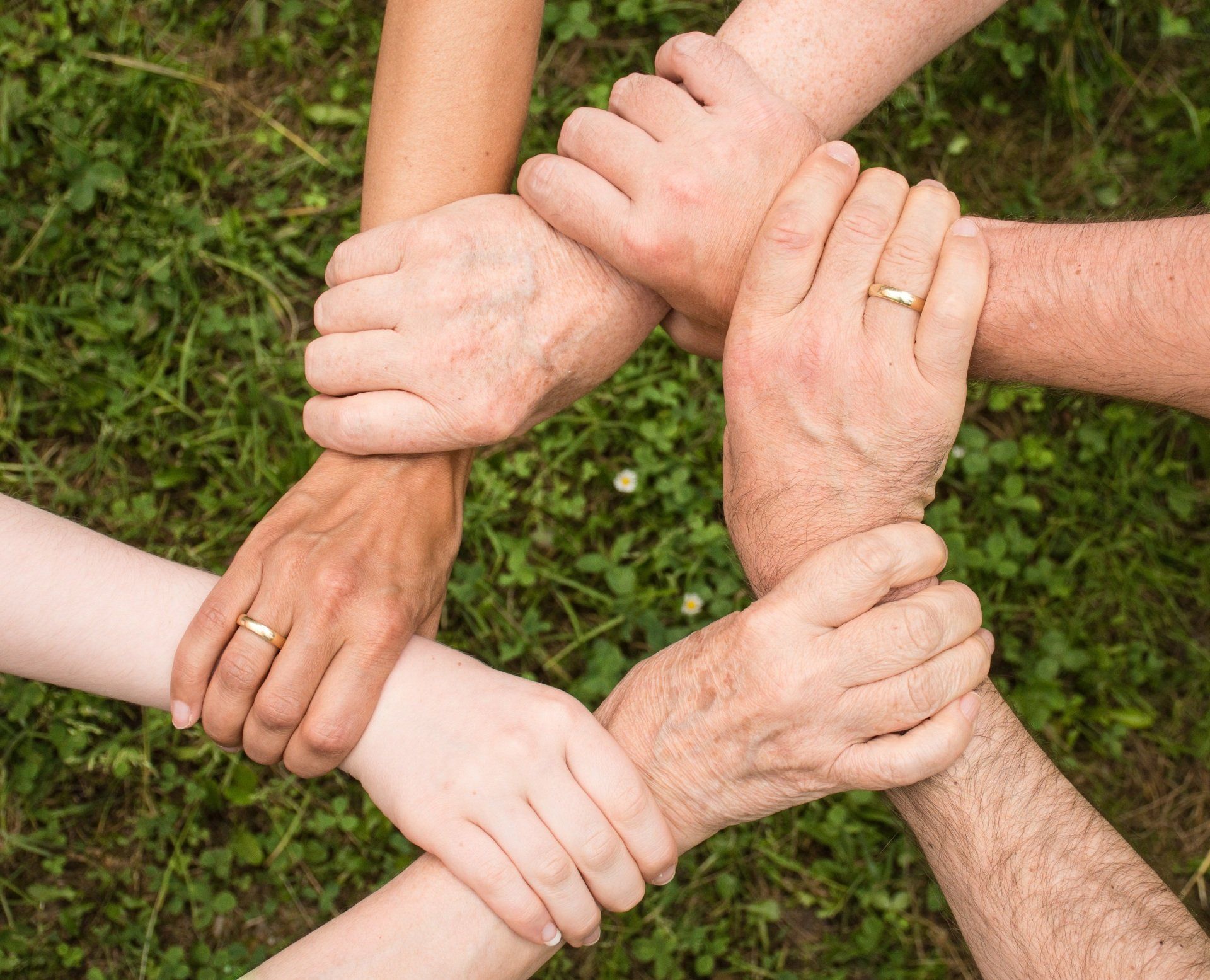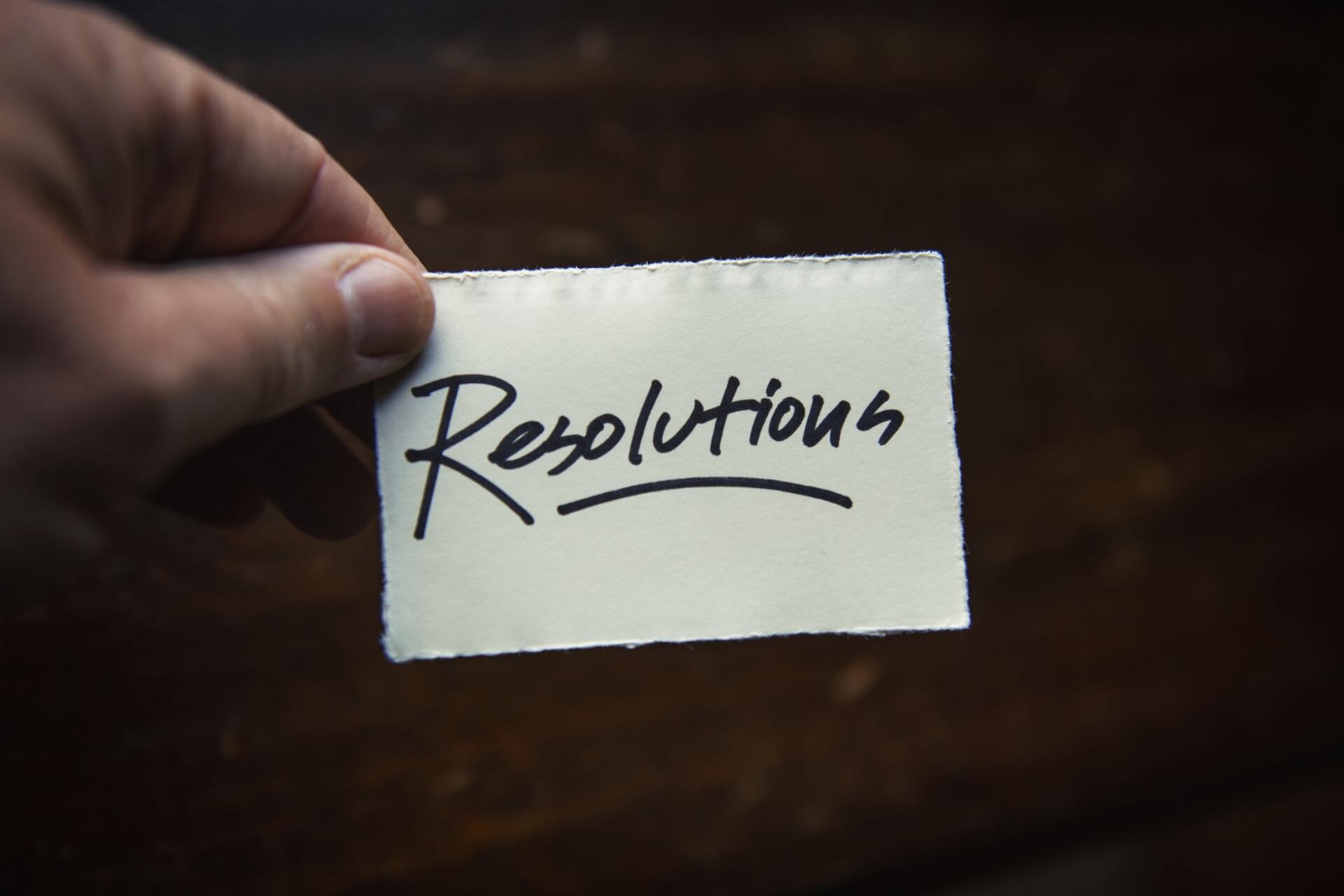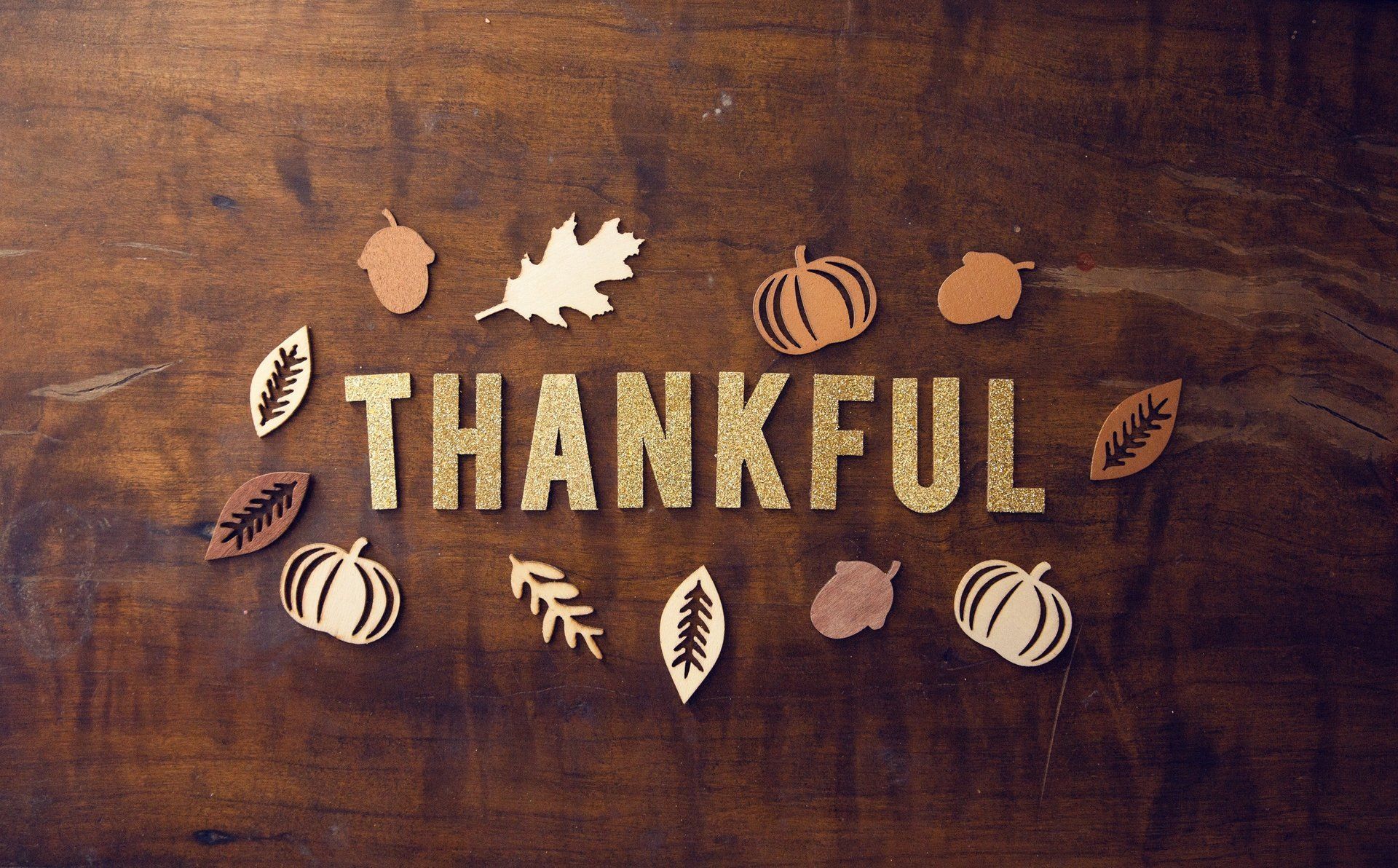News

Help is a tiny four letter word that when carried out, has an enormous and lasting effect on others. Most of us are very willing to offer our help when we see a need that we can fill. However, when the reverse circumstances occur, often the most difficult words to say are, “I need help.” Why is it so difficult for us to ask for help, when we are so readily willing to give it? According to Jennifer Dukes Lee, author of It’s All Under Control, here are a few reasons why we tend to avoid asking for help: We would rather be the helper than the helped. Collaboration sounds like more trouble than it’s worth. Most of us feel like we can get the task(s) done faster and better if we just do it ourselves. At least then we’d know it was done (in our minds) correctly. We are afraid of being told “No.” No one likes to face rejection, especially after building up enough nerve to show your vulnerability or weakness to others. No one likes to feel needy, weak, or incompetent. Asking for help is a form of surrendering control. Let’s face it, we all like things done, “our way.” When we ask for help, we have to be willing to let things be done, “their way.” (Jennifer Dukes Lee, It's All Under Control, p. 169-170, (2018)) In reviewing the above stated reasons for avoiding asking for help, the common denominator that I see woven throughout each rational is a nasty five letter word: PRIDE. Proverbs 16:18 states, “ Pride goes before destruction and a haughty spirit before a fall.” When we refuse to ask for help when we need it, our haughty spirits are rearing their ugly heads. This causes us to be stuck in a state of exhaustion, irritability and being overwhelmed. Contrary to popular belief, when you ask for help, you are revealing your strength to admit that you can’t face your problems on your own. According to Lee, “When you say, ‘I need help,” you’re not uttering feeble words. They may be the strongest, bravest words you ever say.” (Lee, p. 175) So asking for help is actually a sign of strength, not weakness. When you help others, you receive an internal sense of joy and happiness that comes from blessing someone else in need. When you refuse to ask for much needed help, you are robbing others of that joy and blessing. I constantly have to remind my husband of this concept. He is always the first one to offer help to others when there is a need. Over the 30 years we have been married, we have helped many with physical, financial and spiritual needs, often to the point of arguing with the person who needs help. My husband will often say, “Don’t rob me of my blessing of being able to help you.” Yet, he is the very LAST person to ask for help when we need it. He will use excuses like, “We’ve got this,” “I don’t want to be a burden to others” and “It’s easier if I do it myself.” It is very strange how double standards come into play when PRIDE rears its ugly head! You might be the “helper” and see someone who needs help, but doesn’t know how to ask for it. Just show up and meet any need that you see. It may be as simple as taking a meal to them, or showing up and shoveling their driveway or scrubbing their toilets. It could be more committed help like toting their children to and from school for an extended period, taking someone to their medical appointments, or administrative help with their business. Whatever it may be, ask for discernment to see if there is a need and meet if you can. Years ago, we were in a terrible car accident. My husband has a broken hip and shattered hand. I broke my back. Our kids were elementary and middle school aged at the time. Thankfully, the most serious injury for them was my son’s broken foot and ankle. Long story short, we were a broken family that needed help. I was so overwhelmed, that I didn't even know where to begin to ask. My sister came to stay with us for a week, and got on the phone with some of my friends. Immediately, my MOPS group started a meal train for us. They fed my family for two months! I had a friend that showed up unannounced with bathroom cleaners in hand and said, “I am here to clean your bathrooms because I know that you can’t.” We had neighbors that came over and shoveled the driveway when it snowed because they knew we were too broken to do it. The list goes on and on. In short, if you want to be a helper, just show up. The rest will work itself out. Remember, when we help others, we are not only meeting a need, but we are giving them hope, encouragement, and showing them love. We all need a bit of this everyday in our lives.

There has been a lot of discussion about our rights, violation of rights, and what we are entitled to do or not do as Americans over the past year and a half. With the recent celebration of our country’s independence, I thought it might be a good time to remind our brains of what we learned in history class and what our country was founded on. Below is a simplified version of our US Constitution and the unalienable rights that are established and secured for every American citizen. "We the People of the United States, in order to form a more perfect union, establish justice, insure domestic tranquility, provide for the common defense, promote the general welfare, and secure the blessings of liberty to ourselves and our posterity, do ordain and establish this Constitution for the United States of America." The Bill of Rights (or First Ten Amendments)(1791) 1. Congress is forbidden to pass any law setting up a religion or interfering with religious freedom or with free speech or with the right of people to get together peacefully and petition the government to have their grievances looked into. 2. The right of the people to keep and bear arms shall not be interfered with. 3. No soldier in time of peace shall be assigned to live in a private home without the consent of the owner, nor in time of war except in a lawful manner. 4. The people are protected against search and seizure without a warrant. 5. A grand jury is provided for in serious crimes. Persons are protected from being tried twice for the same offense, or from having to testify in criminal cases against themselves, or from being deprived of life, liberty, or property without lawful means. 6. A fair and speedy trial for the accused is guaranteed in criminal cases. 7. A jury trial is provided for in civil suits exceeding $20. 8. Very high bail, stiff fines, or cruel punishment are forbidden. 9. Just because certain rights of the people have been stated in the Constitution does not mean that they do not still have others not mentioned there. 10. All powers not given by the Constitution to the U.S. nor forbidden to the states are reserved to the states or to the people. Later Amendments Remaining Amendments to the US Constitution: 11. Forbids the citizens of another state or of a foreign country from suing a state in the U.S. courts (1798). 12. Provides that the electors should state on their ballots the person they want for President and the person for Vice President (1804). 13. Forbids slavery and "involuntary servitude" (1865). 14. Forbids states from passing laws depriving any person of life, liberty, or property "without due process of law" or of not giving to each person the equal protection of the law (1868). 15. Forbids the U.S. or any state from preventing a person from voting because of "race, color, or previous condition of servitude" (1870). 16. Permits the income tax (1913). 17. Provides for the election of Senators by the people instead of by the state legislatures (1913). 18. Forbids the manufacture, sale, or shipment of intoxicating liquors (the Prohibition Amendment) (1919). 19. Gives women the right to vote (1920). 20. The term of the President ends on January 20. If the President elect dies before the term begins, the Vice President elect shall become President (1933). 21. Repeals the 18th Amendment; once more allows the making and sale of liquor (1933). 22. Bars any President from serving more than two terms. Where a Vice President has become President on the death of the President and has served more than two years of the President's term, the Vice President shall not be allowed to run for more than one term in addition (1951). 23. Gives the District of Columbia three electoral votes for the election of President and Vice President (1961). 24. Section 1. Forbids the United States or any state to abridge or deny any citizens the right to vote for the President or Vice President or for any state representative in Congress because of failure to pay a poll or any other tax. Section 2. Gives Congress the power to enforce this article by appropriate legislation (1964). 25. Sets up a plan for the Vice President to take over the duties of the President when the latter is unable to perform them (1967). 26. Permits voting by eighteen-year-olds (1971). https://teachingcivics.org/wordpress/wp-content/uploads/2013/10/Simplified-United-States-Constitution-and-Bill-of-Rights.pdf Remembering our past helps us appreciate the present and successfully move forward into the future.

Spring is in the air. Traditionally, spring represents a new beginning. The barren-deadness of the winter is passing, and the earth is showing signs of new blossoms and growth. This year, the new beginnings of spring provides even more hope. 2020 was a very difficult, “wintery” year for most of us. Small businesses were closing, people were isolated from their loved ones, many lost their jobs, riots were burning down cities, and division ran rampant throughout our country. A “new beginning” is something that we all needed entering into 2021. COVID-19 mandates infiltrated and cast a black cloud over the world in 2020. When doing the research on COVID-19, it appears that fear was more of a motivating force driving the mandates than science. COVID-19 is 99% survivable for most of the population. While COVID-19 was a very nasty flu that unfortunately took the lives of many, the overall death toll in 2020 was no greater than 2019, or 2018. There was also no reasonable “logic” behind the mandates. Airlines cannot serve coffee or hot drinks due to COVID, but they can fill every seat on a flight. People were forbidden to eat at restaurants, but masses could still shop at Costco. Are these facts reason enough to “quarantine” healthy people and shutdown the whole world? Both “science” and logic seem to be saying “No.” The harm caused by the COVID mandates outweighed any potential benefits. Families were forbidden to gather if they did not live under the same roof. Churches were closed. Singing was forbidden. Children were not going to school. People were not going to work. Everything was remote and isolated. Neighbors were encouraged to “turn in” their neighbors for non-compliance. I actually saw commercials on TV encouraging people to call the police if they had reasonable suspicion that their neighbors had too many people in their home at Thanksgiving! Divisiveness and depression was at an all time high at the end of 2020. Fast forward to the end of the first quarter in 2021, the outlook is promising. COVID numbers miraculously (or suspiciously) dropped after the January Presidential Inauguration. Businesses are re-opening. Families and loved ones began to spend time together in person again. Kids started going back to school, and certain states began to lift the mask-mandates. The COVID debate could go on forever, and in the end, would only create more division. Now is the time to focus on hope and unity. The battle for hope begins with your mind. I choose to focus on scripture that will guard my heart and my mind, and keep my focus positive. A positive outlook and an “attitude of gratitude” can make all the difference in the world. Perhaps experiencing the loss of 2020, will help us appreciate all that we truly do have. We need to as the apostle Paul states, “forget those things which are behind, and reach forward to those things which are ahead.” Encouraging Scriptures to consider: 2 Timothy 1:7 - “God has not given us a spirit of fear, but of power, and of LOVE and of a sound mind.” Proverbs 25:11- “A word fitly spoken is like apples of gold in settings of silver.” Philippians 2: 4- “Let each of you look out not only for his own interests, but also for the interests of others.” Philippians 4:6-8 - “Be anxious for nothing, but in everything by prayer and petition, present your request to God. And the peace of God, which surpasses all understanding will guard your heart and your mind in Christ Jesus…. Whatever things are true, whatever things are noble, whatever things are pure, whatever things are lovely, whatever things are of good report, if there is any virtue and if there is anything praiseworthy- meditate on these things.”

You have heard it said, “Love your neighbor, as yourself.” This saying originally came from God Almighty Himself, when addressing the Israelites in the Old Testament. Leviticus 19:34 states, “The stranger who dwells among you shall be to you as one born among you, and you shall love him as yourself , for you were strangers in the land of Egypt; I am the Lord your God.” (NKJV - emphasis mine). This idea of loving our neighbors as ourselves was so important, that it is mentioned in the Bible 18 different times. Why would the Bible mention this concept so many times? Why would this saying from old be reiterated throughout history to this day? Simple answer - BECAUSE IT IS HARD TO DO! At times, loving others can be a very difficult thing; let alone loving others as ourselves. Loving people who are easy to love is one thing. Loving our spouses, children, family is at times hard, but generally, is considered do-able. Loving unlovable people? That is another story. Note, this saying does not come with conditions. It does not say, “Love your lovely neighbor as yourself.” 0r “Love only your family members as yourself.” It states, “Love your neighbor, as yourself” (PERIOD!) In order for us to be able to walk out this principle, we first have to know who our neighbor is. To determine who is considered to be our “neighbor,” let’s go to the source of the word. The word neighbor can be divided into two English words, “neah” and “gabur.” The word “neah” means “near; and the word “gabur” means “dweller.” So our neighbor can be considered anyone who dwells near us. In other words, anyone we come in contact with. So now that we know who our neighbor is, why are we reminded so many times to love our neighbors as ourselves? As previously stated, we constantly need to be reminded of this concept, because it is a hard thing to do. Additionally, if we lived by this principle, all of us would be better off. If we truly loved our neighbors as ourselves, the majority of conflicts in our lives would be resolved. Think about it, when a conflict with another person arises, if you were to take moment and put yourself in the other persons’ shoes and ask yourself, “how would I want to be treated if this was me?”; chances are, you would respond in a kind and loving way, because that is how you would want to be treated. If everyone acted in such a manner, it would make life a lot easier for all. Conflicts are a normal part of life, but how to resolve conflicts in a healthy manner takes practice. So the next time you face a conflict with a family member, co-worker, or just a “neighbor,” try to step back and respond in a way that loves that neighbor as yourself.

About 40% of Americans make a New Year’s resolution. The most common resolutions are related to financial health (save more, spend less) and physical health (getting into shape, losing weight, etc.) While these great resolutions start out with the best of intentions, the reality is that 80% of resolutions fail by the second week in February. An 80% failure rate in productivity would never be acceptable in the workplace, so why do we accept it in our personal goals? In other words, how can we become more resolved to make our personal resolutions or goals resolute? Here are some tips that could help you find success in your resolutions: Set reasonable goals .Whether the goal is weight loss or save more, make sure it is a realistic goal. For example, resolving to lose 20 pounds in two months is not a realistic or healthy goal, but losing 2-3 pounds in a month can be achievable. Resolving to run 10 miles every day is not a realistic goal, especially if you are not a runner, but running or walking a few miles a couple days a week is realistic. Resolving to save 40% of your paycheck is not realistic. But investing 5% of your paycheck into some sort of interest bearing account is within the reach of most people. 2. Get an accountability partner. E verything is always more fun and more do-able if you have someone doing it with you. Find a workout partner. Ask a f friend to commit to a “no-spend” Saturday each month, and do something active instead like taking a hike, or going for a bike ride (i.e. killing 2 birds with one stone if you have made resolutions for both financial and physical health). It is always easier to succeed if you know that someone is going to be checking up on you. 3. Get a scale and a budget book. We need to track our goals. Americans spent roughly $729 billion dollars during the 2019 holiday season. Typically, holiday spending falls into the following 3 categories: a. Gifts for family and friends: approximately $638; b. Non-gift holiday purchases such as food and decorations: $215; and c. Other non-gift purchases for themselves or their families : $155. A lot of the extra purchases during the holidays revolve around food, resulting in extra money spent and pounds added to our waistline. If you are resolving to either lose weight, or spend less money, or both, it is important to track where your money is going and/or what you are putting into your body. Coming up with a realistic budget and sticking to it, will cause you see where you money is going and perhaps where you can cut back. Getting a scale, (ouch! The “S” word) is really the only way to track whether you are meeting your weight loss goals. You don’t get obsessive about the numbers. But weighing yourself once a week, creates accountability, and allows you to evaluate your eating habits on a weekly basis. 4. Allow yourself a “cheat” item once a week. If you are trying to lose weight, allow yourself to indulge on one item, one day a week. If your indulgence is coffee, allow yourself to have one flavored latte or cappuccino once a week. If your weakness is spending, allow yourself to spend $5 (or whatever is works with your budget) on something for yourself once a week. Completely eliminating something, whether it be a certain food or spending habit, usually does not lead to long term success. All this does is make that person focus on what they can’t have, thereby causing that person to be constantly thinking and obsessing about what they cannot have. However, if they allow themselves to say, have one dessert on Saturdays, then having to skip dessert the rest of the week becomes more do-able, because they know they will be able to indulge on Saturday. But if they try to cut dessert out altogether for the rest of their lives, they are setting themselves up for failure. 5. Click the “restart” button. Don’t give up if you experience a setback. If you bought something on a whim, or nibbled on that piece of cake, don’t beat yourself up. Don’t quit on yourself. Just push “restart” and start over. Again, having an accountability partner to encourage you to “stay the course” and be your cheerleader, will help you defy statics and lead to greater success. There is a reason why we make resolutions at the beginning of a new year. We are reflective on the past year, and what to make some changes for the future. Our intentions are usually great, but following through with our intentions is often another story. Let forged into 2021 with not only good intentions, but a formula that will set us up for success.

I love the Christmas season! I love everything about it...the decorating, the lights, the yummy foods, and most importantly the traditions. When I was young, we didn’t have a lot of traditions, but we did have a few. Every year, I remember baking cookies with my grandma. She was an amazing baker, and would always remind me, “ A good cook always cleans as she goes.” To this day, my kitchen is usually neat and tidy by the time I am done cooking or baking. Our family also had the tradition of opening one present at a time, and watching everyone open their gifts. So the “free for all- dive into your Christmas presents” thing did not exist in my childhood home. Finally, my dad would always read the Christmas story from the book of Luke in the Bible. It was a gentle reminder to us kids as to the real reason why we were celebrating Christmas. When I began to have a family of my own, I made an intentional effort to develop my own holiday traditions with my family. I wanted the focus of Christmas to be on celebrating the birth of Christ, and not Santa and presents. We would celebrate Advent, the four weeks leading up to the birth of Christ. Each day, I would read a section from our Advent book, along with corresponding scripture. Sometimes it would include a special activity for the kids that went along with the reading. Even though Santa was not the focus of our Christmas, he was a part of it. Every year we got Santa photos with the kids. Another tradition that we established was our Christmas Tree excursion. Living in Oregon, we are able to cut down our own tree from the forest. We would bundle up the kids in their snow clothes and traipse out to the forest to find the “perfect Christmas tree.” Once we found the tree (and it was usually a “Charlie Brown” tree), we would cut it down, and then take the kids sledding. After sledding, we ended up at a pizza place for dinner. We did this every year until my kids were in high school. Because in reality, it was not about finding the perfect tree, but about the experience. Holiday baking continues to be a tradition in our family. I would make up plates of cookies for our friends, neighbors and co-workers as a holiday gift from the Gallaghers. When my daughter got into middle school, she started helping me with the holiday baking. Today, although she is out of our home and married, we still calendar our holiday baking together every December. The first Christmas after I was married, my husband wanted to establish the tradition that we do not open presents until we had showered, made our bed, and had breakfast. I thought it was strange, but I went along with it to humor him. This will be my 29th Christmas with him, and I am so grateful we established that tradition. My children never got up a “zero-dark thirty” on Christmas morning, because they knew we had to make our beds, shower and eat breakfast before any present would be opened! We also continued my family’s tradition of opening one present at a time. This makes it nice for us to appreciate each other and the gifts that were given and received. My husband took over the role of reading the Christmas story from Luke for many years. Now he rotates that responsibility with one of our adult sons and they take turns reading the story. (Hint: I think he wants our boys to carry that tradition on when they have families of their own.) By the time we get up, shower, eat breakfast, read the Christmas story and open one present at a time, Christmas morning at our house literally takes all morning long! Traditions remind us of our family. It gives us a sense of where we came from and where we belong. If you haven’t established any holiday traditions yet, it is never too late to start. Start simple. Pick one, implement it, and then you can add another one next year. Gallagher Family Favorite : Six Layer Bars: Ingredients: Baking Instructions : 2 c. Graham Cracker Crumbs Mix together graham cracker ½ cup butter, melted crumbs and melted butter. 1 package (16 oz) diced walnuts Press mixture into bottom of a 1 package (16oz) chocolate chips 13 x9 pan. 1 package of shredded coconut Sprinkle layers of diced walnuts, 1 can of sweetened condensed milk chocolate chips and coconut on on top of graham cracker crust. Pour sweetened condensed milk over the top. Bake @ 350 degrees for 30 min. Cool and cut into bars. Enjoy and Happy Holidays!

November is typically a month where I try to focus on everything that I am thankful or grateful for. However, 2020 has definitely been a year where the negative appears to be outweighing the positive. COVID-19, economic shutdowns, remote work, remote learning, protests, and a very contested election seems to be inundating our media, news, conversations and unfortunately our thoughts. However, it is in exactly times like this that I believe it is even more vital to focus on all that we are grateful for. Small things like being able to go to church, having coffee with a friend, and exercising without a mask on, are all things that I realized I have completely taken for granted. COVID brought that to light, and made me realize how much I miss those little things, and how much I am looking forward to when those things return. Despite all the things that I may feel like I have “lost” this year; there is always something that I can be grateful for. The old adage of “turning lemons into lemonade” has proven to be true and tested. For example, the shutdowns have created a better appreciation for family. I have been more intentional about making sure I connect with my out of state family, and thanks to Face Time, Google Meets, and Zoom, I can do that “Face to Face.” Additionally, remote learning has forced parents to take a more active role in their children’s education. Furthermore, because kids are having so much “screen time” with school; parents are more likely to do non-screen recreational activities with their kids. These are just some of the examples of the lemonade that can be made out of the lemons that we were given this year. Every year I create a “Gratitude Tree” in the month of November. I start with a tree with empty branches. This is something that can be made out of construction paper, or if you prefer can be purchased at a craft store. I then add one leaf to the tree each day in November. On each leaf I write one thing that I am thankful for. My husband and kids participate as well. By the end of the month, the tree is full of leaves with items that reflect our appreciation. I encourage you to try this. Whether you are single, married, or have kids, it will be a good practice to get you in the habit of focusing your attention on what is good in your life, instead of what you feel you have lost. Be blessed!

